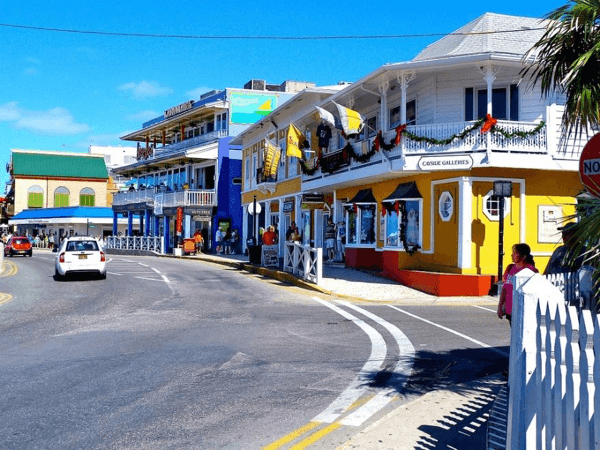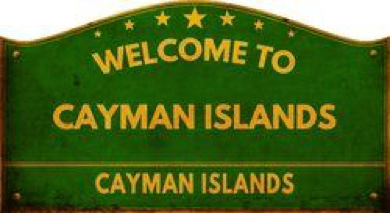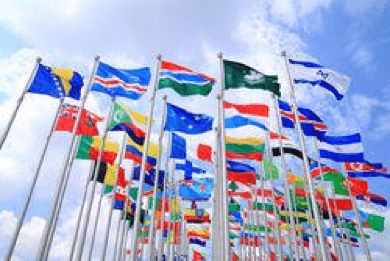
The Cayman Islands offshore financial services industry is the sixth largest in the world. Its banks and financial institutions hold more than $1.7 trillion dollars in assets, roughly six percent of the world’s total banking assets. Often registering on maps as no more than mere specks of three islands on the Caribbean Sea, Cayman is clearly a behemoth in the offshore financial services sector.
This can be attributed to several factors. A strong banking tradition is one. The presence of seasoned experts in the field of taxation, international finance and offshore banking is another. The high standard of living and stable political situation are contributing factors as well. The trust sector is a major component of the country’s financial services industry. The asset protection features of a Cayman trust instrument derive from well-established trust laws, a fair window of opportunity and a strict code of ethics for professional trustees.
The Cayman Islands has worked hard to dispel the myth of secrecy and illegitimacy that used to hover over its financial services industry. Towards this end, it has built an extensive international network for tax purposes in line with current global standards. It is hoped that by operating with worldwide transparency, nations can build an international financial empire that truly benefits the widest range of individuals and companies possible.

Cayman Islands: Strong Offshore Banking Tradition
As of this writing, there are 212 Cayman Islands banks. For a 264-square kilometer island, this translates to roughly one bank every 1.2 square kilometers. Majority of these banks are international institutions. They are only allowed to transact business with companies and individuals located outside of the islands. It is estimated that at least $1.5 trillion in international assets were booked through the Cayman Islands for the year 2014 alone. This amount continues to grow year on year. Additionally, 40 of the world’s top 50 banks hold licenses in Cayman. Clearly, this small Caribbean nation is a major contender in the international banking arena. This strong banking tradition is part of the success of the Cayman Islands offshore banking and financial sector.
The thriving banking sector has also contributed much to Cayman’s overall robust fiscal health. The government enjoys consistent budgetary surpluses, which allow them to set aside ample cash reserves, keeping the country financially stable. At the same time, Cayman’s forward-thinking government invests heavily in infrastructure projects, modern energy technology and digital telecommunications. All these only serve to further cement their stellar reputation as a world-class offshore financial center.

Offshore Financial Services Experts
Having modern financial and information technology facilities alone is not enough to stake a claim in today’s challenging world economy. Luckily, the Cayman Islands also has a deep roster of experienced financial professionals within their jurisdiction. Accountants (bordering on 900 as of last count), lawyers (around 550) and certified financial analysts (110, give or take) abound on Cayman’s three small islands. Majority of these seasoned professionals work in their respective fields for some of the world’s top firms. They are attracted to the Cayman Islands because of the wealth of opportunities, dynamic fiscal structures and staunch government support. This concentration of financial and banking brainpower and experience is difficult to come by in any other region of the world today. Cayman Islands’ reputation as a first-rate offshore financial center rests mainly on the shoulders of these talented professionals.

Stable Offshore Banks
A British overseas territory, the Cayman Islands has enjoyed a long and steadfast political history. It operates under a parliamentary democracy, with the UK in charge of its defense, internal security and external affairs. Its economy is also largely stable. Caymanians have a high standard of living, in fact, the highest among Caribbean nations. Cayman owes much of its wealth to two sectors – tourism and its thriving financial services industry. The latter constitutes 55 percent of Cayman’s Gross Domestic Product and generates 40 percent of all government revenue. Up to one-third of the islands’ population (36 percent) is employed in the financial services sector in some capacity.
Because it is integral to the country’s economic existence, the financial services industry is closely monitored. This task falls mostly on the Cayman Islands Monetary Authority, or CIMA. CIMA exercises supervisory and regulatory control over the financial services industry throughout the Cayman Islands. Financial services providers are given the operational freedom they need to provide their clients with top-notch service. At the same time, they are held to a strict code of conduct to ensure that the services they render meet widely-accepted international standards. It’s a delicate balancing act that CIMA has perfected in nearly two decades of existence.

Offshore Asset Protection
The trust legislation of the Cayman Islands is well-established and provides excellent asset protection features. There are several trust companies registered in the islands with many years of experience behind them. The trust sector is a main contributor to Cayman’s reputation as a leading international finance center.
Most people who desire a sound fortress to keep out litigious predators will establish their asset protection trust in another jurisdiction. That is because the time period wherein a transfer can be attacked as fraudulent is longer in Cayman than in other offshore jurisdictions. A one- to three-year window is typical. This is the case in Nevis and in the Cook Islands. In Cayman, creditors have up to six years to pursue a fraudulent transaction ruling against a Cayman Islands trust. This is the same statutory limitation set for tort claims and breach of contract. Keep in mind however, the creditor has to prove that the settlor had knowledge of his or her claim before the assets were transferred to the trust. That indeed, the asset transfer was made for the sole purpose of defrauding the specific creditor pursuing the claim. Anything short of this conclusive proof and your assets are safe.
This window of opportunity underscores perhaps the single most important advice you can follow when it comes to asset protection: start early. An asset protection vehicle shields you best when it’s in place before a lawsuit has been lodged against you. This is true whether you’re talking about a trust, a limited liability company, a corporation or some other asset protection instrument. Have one in place before the storm clouds gather; it’s the best way to weather any type of calamity.
CIMA also regulates Cayman Islands individuals and companies that offer institutional or corporate trustee services. There are structured licensing requirements in place and Cayman adheres strictly to internationally-recognized licensing standards. In other words, it’s highly unlikely that a Cayman Islands trustee will take your assets and run. It’s good to be 100 percent assured that a trustee company has acted improperly with respect to client funds, especially when you’re thousands of miles away onshore.

Cayman Islands Banking Secrecy
The Cayman Islands has worked hard to shed the seedy image that has dogged the offshore financial industry for years. Offshore accounts were long thought to be the repository of hidden wealth, money that the ultra-rich kept from their governments. In other words, money that should rightfully be taxed, but aren’t. This is why most offshore jurisdictions were often referred to as tax havens.
Cayman Islands currently has more than 70 information-exchange relationships for tax purposes with countries all over the world. Along with representatives from more than 50 countries, it recently signed the Multilateral Competent Authority Agreement (MCAA) of the Organization of Economic Cooperation and Development (OECD). This agreement allows for an automatic exchange of information among tax authorities in country signatories. Cayman also signed the U.S. Foreign Account Tax Compliance Act (FATCA). This requires Cayman offshore banks to report American accounts with more than $50,000 in assets.
From all of the above, it’s clear that the government of Cayman Islands believes in transparency and worldwide cooperation. Its financial services sector operates out in the open, adhering to well-established international professional standards. There are no shady back-alley deals. Cayman owes its success in the financial services industry to being a tax-neutral country, not a tax haven. Cayman financial experts help their clients integrate their offshore bank accounts with the tax laws of their home countries. There is no tax code anywhere in the world that does not have loopholes. These ambiguities are what allow multinational corporations and wealthy individuals to maintain billions of dollars in assets in offshore accounts. The tax, finance and banking experts in the Cayman Islands use these gaps in tax codes to legally protect your assets from creditors and/or prevent you from being taxed to death in your home country.

Conclusion
The Cayman Islands has a well-regulated financial services sector with a solid banking tradition, a slew of financial experts at the ready and a robust economy. With $1.5 trillion in annual booked assets, and increasing with each year, this is clearly an ideal combination for success. The trust sector is another major contributor to Cayman’s financial services industry. The Cayman Islands trust derives its strong asset protection features from the country’s formidable trust legislation. The Cayman Islands is part of a global effort to bring transparency to the offshore financial sector. The offshore financial services industry has a rightful role to play in international finance. By cooperating with nations from all over the world, the Cayman Islands hopes to bring even greater success to its financial services industry.

